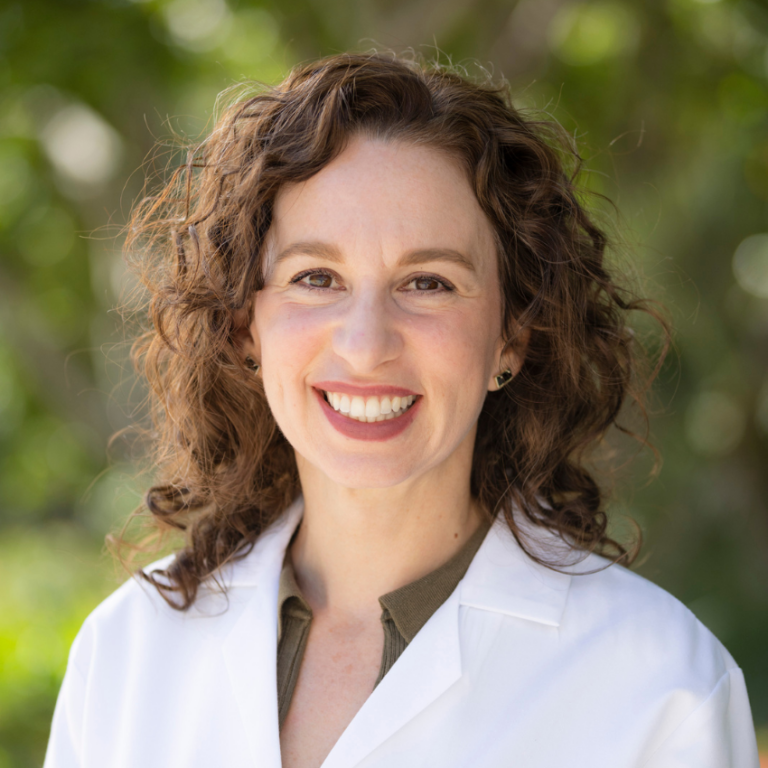Deciding whether or not to freeze your eggs is a big decision. Many women are unsure of the process, if egg freezing is right for them, and what to expect. To help alleviate some of these unknowns, Dr. Lauren Roth, SGF’s Medical Director, answers the most commonly asked questions from women just like you who are researching this opportunity.
How many eggs do I have?
“Generally, women are born with two ovaries, each containing resting eggs or follicles. Every woman is born with a set amount of eggs. At 20 weeks gestation, a woman has about 6 million eggs, the most eggs she will ever have in her lifetime. At birth, she will lose approximately half of her eggs, and by the time she reaches puberty, she has only about 200,000 left. During a menstrual cycle, one egg matures while the remaining eggs that are present that month die off. Testing is available to evaluate your ovarian reserve to measure the quantity of eggs (also called ovarian reserve) you have available.”
How do I know if egg freezing would work for me?
“A woman’s age along with simple ovarian reserve testing evaluates her fertility potential and if egg freezing is a viable option. In simple terms, we are evaluating both the quality and quantity of eggs available.
The ovarian reserve testing includes:
– A blood draw to measure a woman’s ovarian function, otherwise known as her egg quantity
– An intrauterine (internal, or transvaginal) ultrasound to measure a woman’s ovarian reserve
The combined results will provide a strong indication of your ovarian reserve. Based on that information you and your physician can discuss if egg freezing is right for you.”
How can I prepare my body for egg freezing?
“The main thing we would tell any of our patients is to maintain a healthy diet and lifestyle. Other factors that could hinder your fertility include: excessive caffeine, smoking, drugs, and alcohol. If you are a current smoker, we recommend quitting at least 3 months prior to starting a cycle.”
What are the side effects of hormone medications?
“The side effects of hormone medications are largely dependent on the patient. Some women may experience heightened symptoms similar to what is experienced during PMS, others might feel increased bloating and some discomfort related to the enlarged ovaries.”
Do you offer assistance with medication injections?
“Yes. While the injection needles are, for the most part, very small, we offer injection training classes and work with a company who offers at-home injection services.”
How many eggs (mature or immature) would you recommend freezing and is the number dependent on age?
“At Shady Grove Fertility, we only freeze mature eggs as only mature eggs can lead to a pregnancy. The number of eggs we recommend for women to freeze is dependent on her age and ovarian reserve test results. We recommend that women 37 or younger who have excellent ovarian function freeze between 15 to 20 mature eggs. For women over 38, or women at any age with diminished ovarian function, we recommend freezing 25 to 30 eggs. This provides you with multiple attempts to conceive if a cycle is unsuccessful.”
When coming back to use my frozen eggs, how many are thawed at a time? Will all of them be used at once?
“When you are ready to use your frozen eggs, either some or all of your eggs will be thawed and then fertilized using intracytoplasmic sperm injection (ICSI). ICSI is necessary as the coating that surrounds the egg is hardened when it’s frozen. Therefore, we need to select a single sperm and inject it into the egg in order for it to fertilize.”
If I come back to use my eggs at a later date, would I be go through in vitro fertilization (IVF)? What is the cost?
“No. When you freeze your eggs, you are doing the majority of the process involved with IVF upfront. Simply put, when you freeze you are essentially doing the “IV” and when you come back you do the “F,” or the fertilization process. Financial options are available for returning Shady Grove Fertility egg freezing patients when they are ready to conceive and need to use their frozen eggs.”
What are the pregnancy success rates using frozen eggs?
“Shady Grove Fertility is one of the only fertility centers in the U.S. with published egg freezing pregnancy data. In a recently published study, Shady Grove Fertility assessed the performance of 1,171 egg freezing cycles for 875 women. At the time of the study, 117 of these women had returned to undergo 128 egg thaw cycles, using a total of 1,283 frozen eggs. The results from these 128 egg thaw cycles included 51 viable pregnancies, resulting in 55 children and 8 more on the way at the time of the study (12 of the pregnancies were twins). In addition, 62 good quality blastocysts remain in storage from these warming cycles for future attempts.”
Does it matter how old I am when I decide to use my eggs?
“Yes. In general, we recommend women freeze their eggs between the ages of 30 and 40, with the ideal range being between 32 and 37. Freezing at a younger age typically produces better results. If you were to freeze your eggs at the age of 30 and use them at the age of 40, your chance of success and risk of miscarriage would be that of a 30 year old. You are “locking in” your success rates based on the age at which you froze. The nice thing about that is, as we age, our ovaries age but our uterus remains healthy until age 50 (approximately). As long as you are in good health, there should be no concerns if you come back to use your frozen eggs in your 40s.”
How can I be sure that my eggs are only used for me and are not used for other patients?
“Your eggs are your property. You know exactly how many eggs we have frozen and stored for you. They are kept completely separate from other stored eggs with many redundant quality controls and identity protocols in place for their protection and your peace of mind. Read more about our state-of-the-art embryology lab and the protocols used to ensure the safety of eggs.”
Given the advances made in egg freezing technology, Shady Grove Fertility has seen an 83% growth in their egg freezing program since 2013, and numbers of women choosing this viable option continue to rise. The popularity of egg freezing at Shady Grove Fertility is largely contributed to continuous innovation that is increasing success rates; transparent, published success rates; and a variety of affordable financial programs.
Medical contribution by Lauren Roth, M.D.
Lauren Roth, M.D., is the Medical Director of SGF, and board certified in obstetrics and gynecology and reproductive endocrinology and infertility. She has published research on a range of fertility topics including polycystic ovary syndrome (PCOS) and the impact of weight on reproductive hormones. Dr. Roth sees patients in SGF’s Rockville, Maryland office.
Editor’s Note: This post was originally published in July 2014 and has been updated for accuracy and comprehensiveness as of March 2019.
To learn more about egg freezing and whether it is the right option for you, please schedule an appointment with our New Patient Center by calling 1-877-971-7755 or complete this brief online form.







